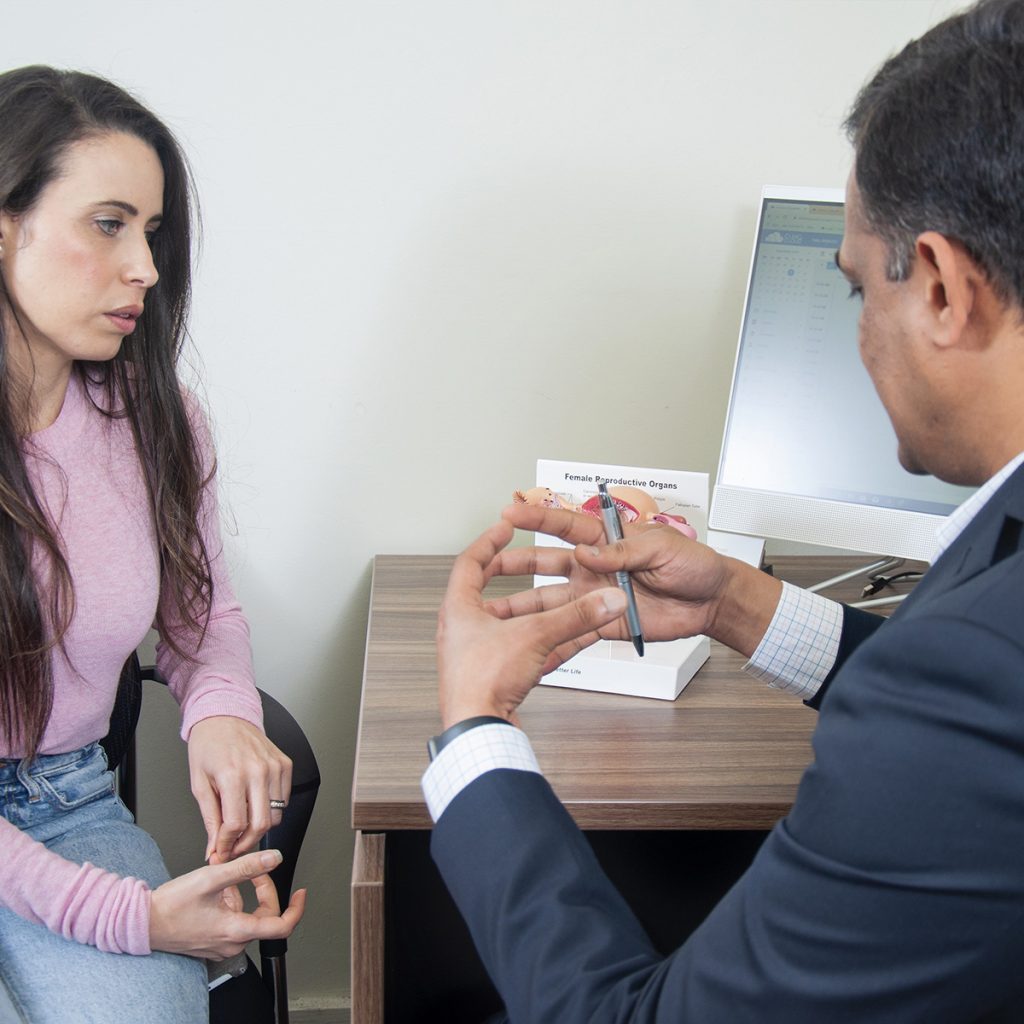Abnormal Pap Smear & Colposcopy
What is an abnormal pap smear?
The Pap smear test has been replaced in Australia with a new Cervical Screening Test, which is required every five years. Abnormal Pap smear results refer to any abnormal cells that were found in a sample taken from the cervix. The new Cervical Screening Test now looks for HPV infection, which can identify any risks of cervical cancer earlier than the Pap test could.
What is a colposcopy?
A colposcopy is a procedure to look at your cervix and vagina through a microscope to identify areas that may appear abnormal. During a colposcopy Dr Kothari uses a colposcope, which is an instrument that looks like a large microscope to obtain a magnified view of your cervix.

Why do women need a colposcopy?
If your Cervical Screen Test or HPV results have shown any abnormalities, a colposcopy may be recommended. This procedure is used to determine if further treatment is needed for possible precancerous or cancerous lesions of the cervix and/or surrounding tissue. This procedure is done in the practice and does not require an anaesthetic.
During this procedure, Dr Kothari often takes tiny tissue samples (biopsies) of the cervix and sends it to a pathologist for a diagnosis. A colposcopy and biopsy usually take about 10 minutes. A patient can anticipate some mild, short-lived discomfort during the biopsies, which most women describe as menstrual cramping or sharp pinches.
Most women return to work and their daily activities immediately following the procedure, but some report feeling sore for a few days. You may have a slight discharge and it is recommended to wear a liner or light pad for a few days. It is also recommended to refrain from inserting anything into the vagina for about 5 days following the procedure to allow the cervix to heal from the biopsies.
What are the potential risks of the procedure?
It is unusual to have problems after a colposcopy. If biopsies are taken there is a small risk of bleeding or infection. You should notify Dr Kothari if you experience heavy bleeding (be sure it is not your period), abnormal discharge, vaginal odour, severe pain or fever after the procedure.
How will you get your results from the colposcopy?
It is customary to return to the clinic approximately 2 weeks following the procedure, to have a discussion with Dr Kothari about the results of the colposcopy and the biopsies. It is at this visit that Dr Kothari will discuss possible further treatments and/or thorough follow-up surveillance with cervical screenings.
What are the treatment options if your biopsies are abnormal?
Treatment options all depend on the degree of the abnormality. Some abnormal cells require nothing more than a follow-up cervical screening or other tests to monitor. Other times it is necessary to treat or remove any pre-cancerous cells, which can be done by a procedure within the practice. Dr Kothari will discuss this with you at your two-week follow up appointment after the procedure.
